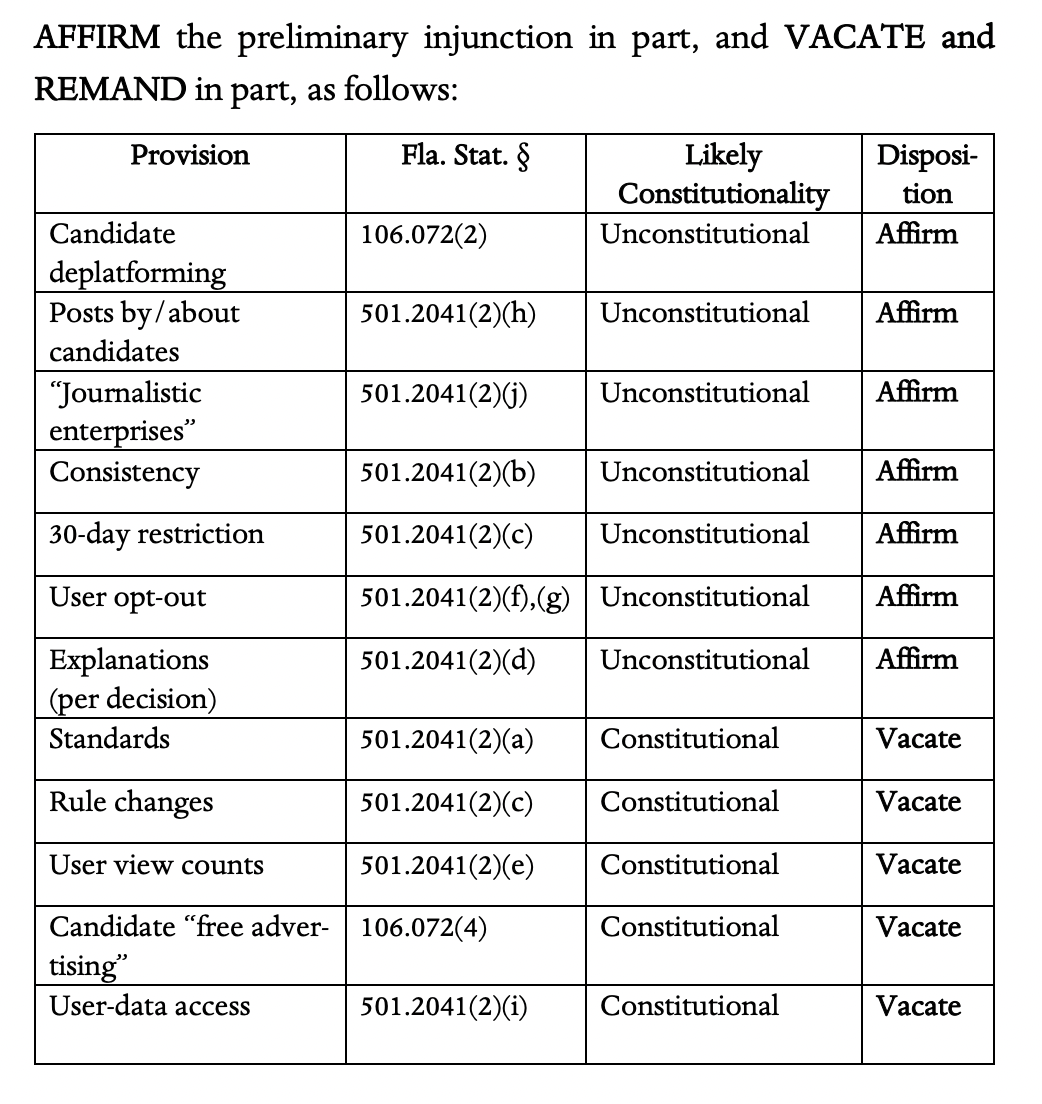On Monday, the 11th Circuit Court of Appeals ruled that Florida’s social media regulation law is unconstitutional. The victory for social media companies comes as they fight another court of appeals law that allowed a similar law in Texas to be enforced.
The 11th Circuit Court of Appeals ruled against most of the provisions in Florida’s social media regulation law. However, it said some of the provisions, including one that requires platforms to allow banned individuals to access their data for at least 60 days, were constitutional.
The ruling said that the law violated social media companies’ First Amendment rights.
We obtained a copy of the ruling for you here.
“Taking stock: We conclude that social media platforms’ content-moderation activities — permitting, removing, prioritizing, and deprioritizing users and posts — constitute ‘speech’ within the meaning of the First Amendment,” the court ruled.
Most notably, the court rejected the argument that social media companies should be defined as “common carriers.”
“Neither law nor logic recognizes government authority to strip an entity of its First Amendment rights merely by labeling it a common carrier,” the court wrote.

The court also ruled that the provision requiring social media companies to explain their content moderation decision violated the First Amendment.
Earlier this month, the 5th Circuit Court of Appeals allowed a similar law in Texas to be enforced. The Texas law prohibits social media companies from censoring content or banning users based on political viewpoints.
Tech companies have appealed the ruling by the 5th Circuit Court of Appeals and have submitted the ruling by the 11th Circuit Court of Appeals to support their case.
The opposing rulings from the two circuit courts could pressure the Supreme Court to rule whether or not online platforms’ content moderation practices are protected by the First Amendment.












